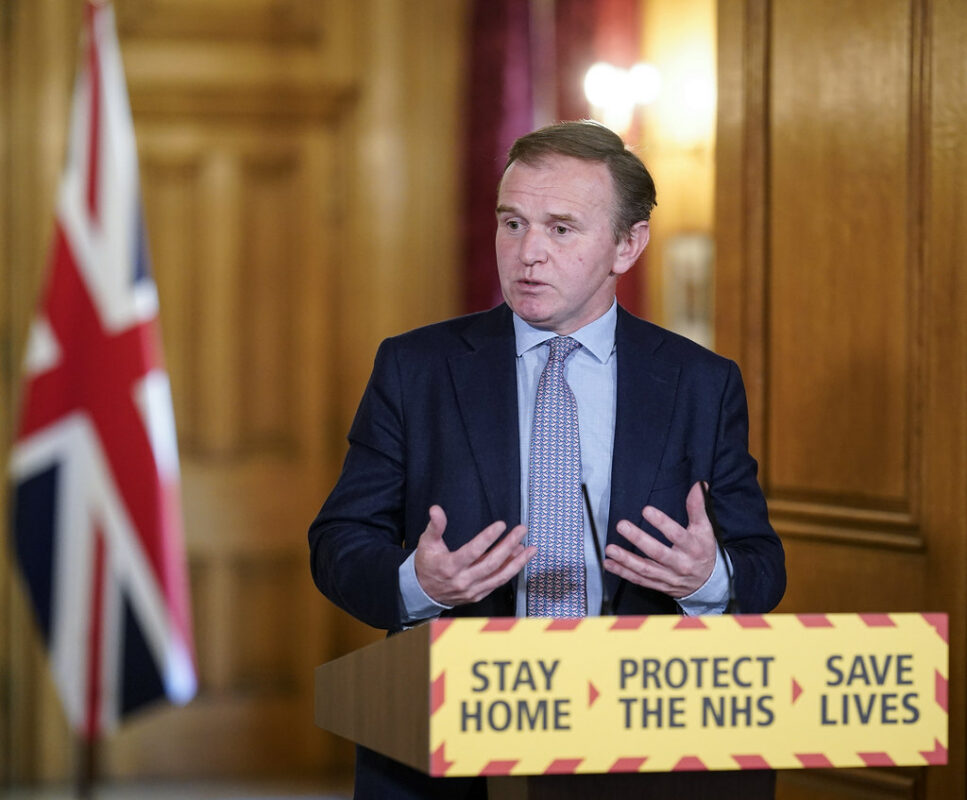
George Eustice was Secretary of State for Environment, Food and Rural Affairs from 13 February 2020 to 6 September 2022. Image: Number 10 (Flickr).
Former environmental secretary George Eustice has clarified that Best and Most Versatile (BMV) land does not include land graded 3B.
This follows Eustice questioning the use of agricultural land for solar power, in light of the surge in the number of projects being developed, at an Environmental Audit Committee meeting in June.
At the time, he pointed to guidance issued by the Department of Environment, Food and Rural Affairs, together with the Ministry of Housing, Communities and Local Government (MHCLG) to local authorities in 2015 which “created a strong presumption against solar farms on Best and Most Versatile land, and that is classified in law as grade 3B or above.”
“We’re conscious that there have been quite a few big schemes in recent months or over the last 12 months, where planning authorities seem to have either forgotten or started to disregard that advice,” continued Eustice at the Committee meeting.
“I don’t think new guidance was issued by MHCLG, but if… they don’t understand the legal definition of BMV land we will take that up with them. But 3B constitutes BMV land.”
The agricultural land classification (ALC) grades land from 1-5, with a number of subsections. Grade 1 is considered excellent quality agricultural land, best for growing fruit and salad crops for example, whilst Grade 5 is very poor quality agricultural land, suitable mainly for just permanent pasture or rough grazing.
Solar farms are not built on land considered BMV within the ALC, and instead on land that falls into Grade 3B – denoting moderate quality agricultural land – or below. As such, it does not have a significant impact on food production or security in Britain.
As such, Eustice’s comments in the meeting were met by criticism from the solar sector. This was exacerbated by the wider concern around misinformation about the land use of solar and its impact on food security during the recent Conservative leadership race.
In a letter to Philip Dunne, chair of the Environmental Audit Committee, earlier in September Eustice has now clarified that the policy stance issued by the chief planning officer in 2015 did not make reference to the BMV land.
Instead that guidance stated that when greenfield sites are developed for solar, there should be a presumption in favour of less valuable agricultural land. An accompanying Written Ministerial Statement at the time did however make reference to BMV land, a move that was designed to emphasise the importance of BNV land in particular.
Eustice confirmed that his previous statement that BMV land is defined as that classified as grade 3B and above was based on his recollection of a discussion with policy officials in 2015, when the guidance mentioned above was first issued.
Additionally his statement was informed by his knowledge that the government had conceded a Judicial Review challenge to a challenge made by the Planning Inspectorate around the development of a solar array on grade 3B land.
“However, I would like to take this opportunity to clarify that BMV land is actually defined by Natural England’s Guide to assessing development proposals on agricultural land (2021) and in the National Planning Policy Framework (2021) as land above (but not including) grade 3b,” Eustice wrote.
The former environmental secretary – who stepped down from his role during the recent reshuffle brought about by the election of Liz Truss as Conservative leader and therefore Prime Minister – highlighted that the Committee should note that 2015’s planning guidance does not make reference to BMV land.
“Therefore, for example, where a Planning Authority is considering a development on 3b land, there is also a need for them to consider whether there is any land that is classified as grade 4 or below as an alternative,” finished Eustice.
“It should also be noted that concern over the loss of agricultural land has been an issue in the recent Conservative Leadership debate and the new leader of the Conservative Party has pledged to take further action to strengthen protections for agricultural land.”

